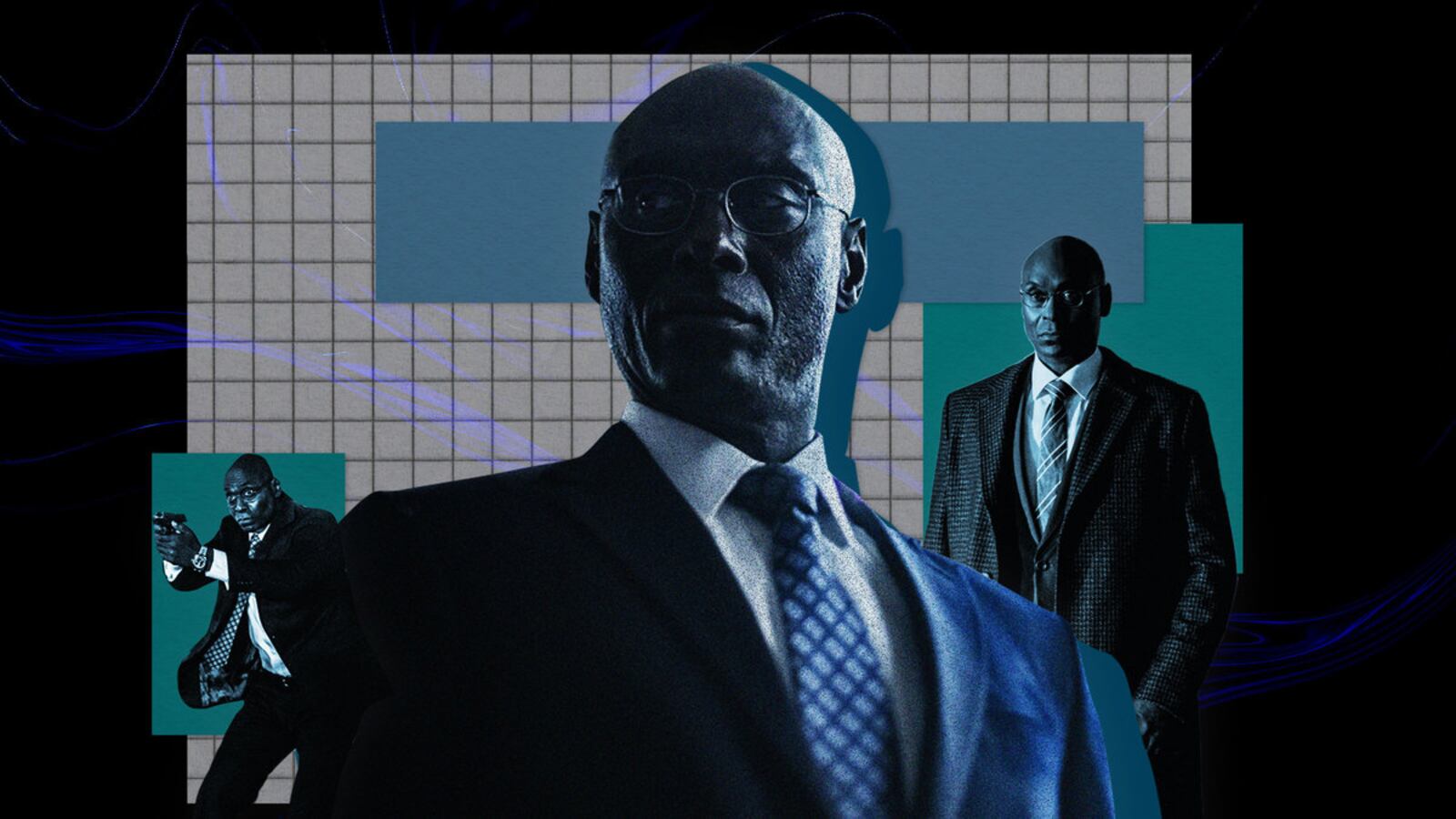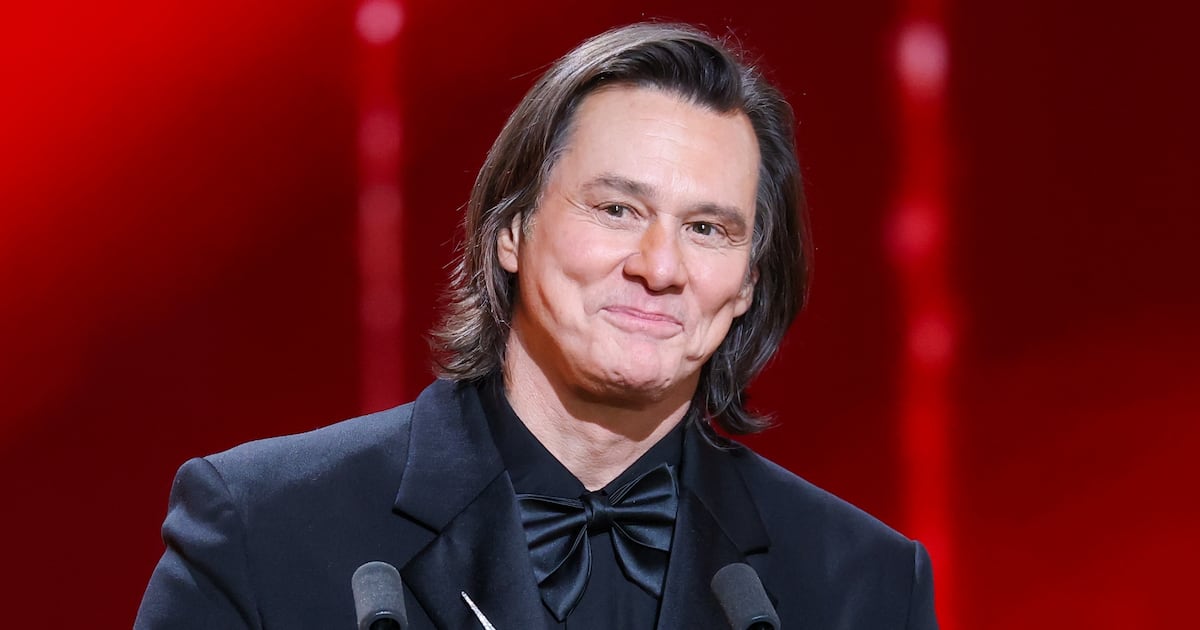Lance Reddick made everything better, whether co-starring as Baltimore police lieutenant Cedric Daniels in HBO’s The Wire, as Homeland Security special agent Phillip Broyles in Fox’s Fringe, or even as a variety of Albert Wexler clones in Netflix’s otherwise lame Resident Evil.
A man of imposing stature whose deep, smooth voice exuded authority and menace in any register, and whose intimidating presence didn’t preclude him from also exuding poised, compassionate calm, the 60-year-old actor was a welcome sight in any film or television show. Thus, his untimely death last week at a too-young age hit the entertainment world—and his many fans—particularly hard.

While Reddick may be gone, he nonetheless returns to movie screens this weekend in John Wick: Chapter 4, the epic latest installment in Keanu Reeves’ hitman franchise, once again assuming the part of Charon, the dapper concierge at New York City’s swanky assassin hotel, the Continental.
Taking advantage of his suave stylishness, his composed cool, and his ability to suggest daunting might with a polite smile, it’s a small but memorable role that’s helped bring the Baltimore native to the attention of a wider audience. Alongside Ian McShane as Continental manager Winston, Reddick has lent the series an additional measure of chic, methodical muscularity, and in return he’s received a mainstream platform fit for his considerable talents.
Which is why it’s so disheartening to discover that, for all its superlative attributes, John Wick: Chapter 4 does Reddick dirty.
(Warning: Spoilers ahead.)
Reeves’ fourth outing as the well-dressed executioner is a dizzying bonanza of bullets, nunchucks, car crashes, and bloodshed, leaning so heavily into larger-than-life spectacle (replete with nods to Lawrence of Arabia, Barry Lyndon, and The Warriors) that it ably earns its 169 minutes. What it doesn’t do, however, is evenly spread the love.
Director Chad Stahelski obviously lavishes the majority of his attention on Reeves’ killer-of-few-words, and he also makes sure to provide standout moments for McShane, Bill Skarsgård (as the villainous Marquis Vincent de Gramont), Hiroyuki Sanada (as Wick’s old samurai buddy), Scott Adkins (as a fat suit-encased German baddie), and, most of all, the legendary Donnie Yen (as a Zatoichi-esque blind assassin hired to dispatch Wick). Even Laurence Fishburne, in his few on-screen appearances, gets to bellow with magisterial grandeur as the underground’s reigning Bowery King.

Reddick, though, gets no such treatment. Charon may have always been a peripheral franchise figure, designed only to add additional personality and eminence to the proceedings, yet at least in John Wick: Chapter 3—Parabellum, he was given a climactic chance to shine. In John Wick: Chapter 4, on the other hand, he’s summoned at the film's outset to meet with Winston and Gramont, and then—once Gramont blows up the Continental and excommunicates Winston from the assassin’s world—is summarily executed before Winston’s eyes.
“It has been an honor, my friend,” he tells his employer, and then expires on the floor—an unceremonious end that’s subsequently ignored (and, therefore, forgotten) throughout the remainder of the film’s gargantuan runtime.
The John Wick: Chapter 4 cast has paid sincere and stirring tribute to Reddick over the last promotional-tour week, and yet almost no mention has been made about the cavalier manner with which he was excised from the series. To be fair, Reddick will once again embody Charon in the forthcoming franchise spin-off Ballerina (starring Ana de Armas), courtesy of its story taking place between John Wick’s third and fourth installments. Still, there’s no shaking the impression that Reddick’s role should have been expanded as this saga went on, not eliminated simply as a means of generating some early plot-catalyst pathos—especially in the cheap, throwaway fashion it’s done here.
Even if it did make narrative sense to permanently retire Charon, Reddick deserved a far better send-off than the one he receives in John Wick: Chapter 4, which expends bare-minimum effort closing the books on one of its signature (if secondary) characters. Reddick’s legacy will endure thanks to the strength of his impressive body of work, especially on the small screen, where his stately, steely magnetism—colored with a sly sense of humor—was often best utilized. It’s too bad that, in contrast, his latest big-screen project saw fit to so carelessly waste him.
Keep obsessing! Sign up for the Daily Beast’s Obsessed newsletter and follow us on Facebook, Twitter, Instagram and TikTok.







